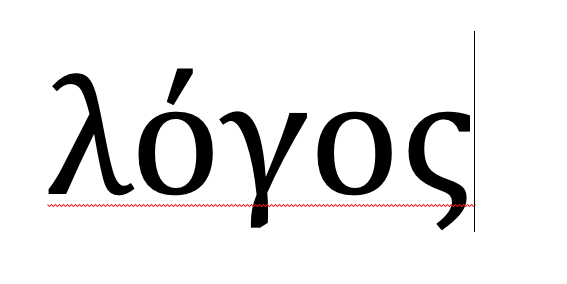When I was in college I had the privilege of staying with a team that was translating the Bible into a village language. One of the issues they were wrestling with, and in fact many of the missionaries in the country were wrestling with, is what name of God to use. The country was most predominantly a folk variation of Islam. So do they use the name “Allah” that is familiar yet has its associations with Islam? Or a more generic name of “God” but one that does not resonate with the people? The missionary community had a wide variety of opinions.
The same question becomes an issue when translating the gospel to any culture. Typically there are many names of “god,” and even strongly specific names for God that resonate with the people but have the barnacles of other teachings attached to them. It is a question that every translator faces.
And in the 3rd-1st century BC that question was faced when the Greeks began to translate the Old Testament (the New Testament was yet to happen) into the Greek language. Was there a suitable name for God in the Greek language that was the equivalent of Elohim in the Hebrew language?
The word Theos was a generic term for god but it was very familiar to them. It was a general term that just like the word “man” could mean any man. It wasn’t specific to one deity.
Although what was going for the term Theos was that in the 3rd century BC the philosophers Xenophanes, Plato and Artistotle used Theos as a personal name for a Superme being (Encyclopedia Brannica, 15th ed., vol 13, p. 951 and vol 14, p 538). So there was some sense that Theos was both many gods and one god.
Zeus was another name for God on the table as the name means “king of the gods.” But unfortunately the pagan theologies had hijacked that name and taught that Zeus was the offspring of the gods Cronus and Rhea. Because of that the term Zeus did not make a good candidate for the name of God.
So finally the translators adopted the word Theos and used it for the translation of the name of God. The apostle Paul also used this term Theos in his preaching.
But even before this there was the term for the Greeks Logos. A Greek philosopher by the name of Heraclitus first used the term in the 6th century BC. Logos simply meant “word” and he used to mean an unseen force of something timeless and divine that brought unity. It was this philosophical basis that the Greeks adopted the term “logos” as more than just “word,” but the power of “word” in an eternal, unifying sense, albeit vague at the time. For Heraclitus the logos was not just concept and philosophy but an unseen force that held all things together, unifying it and giving it order in a world that was constantly changing.
John 1:1 – The Logos of Heaven
Into the scene comes Paul preaching the gospel. Using their understanding of divinity and unity encapsulated in the logos and with the ever growing semantic change that the term Theos is one God, John says this:
“In the beginning was the logos and the logos was Theos and and the logos was Theos…The logos became flesh, and lived for a while among us (John 1:1,14).
What John did was use their understanding of the logos, that divine and unifying understanding of “word” to say that this was Theos. And that Theos was manifest in the name of man named Jesus. Just as Paul had used the understanding of Messiah for the Jews to point to Jesus, now John was using the logos of the Greeks to point to Jesus. Jesus did not destroy their understanding of the divine, but rather was the fulfillment of it.







